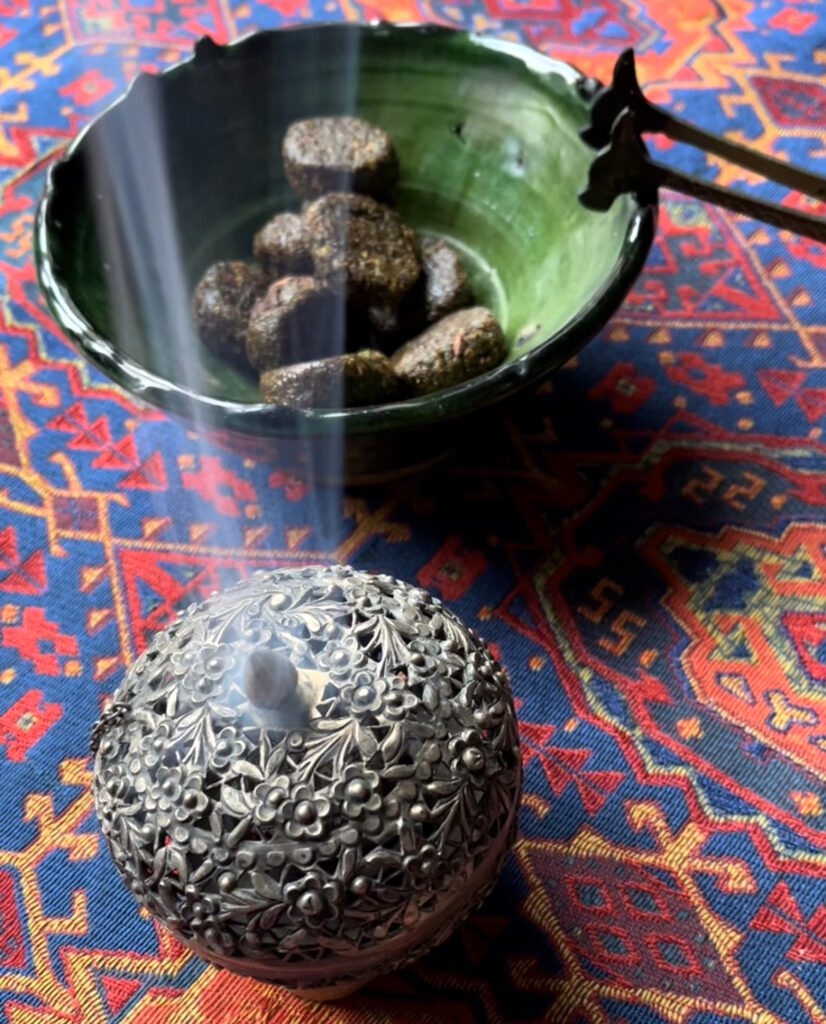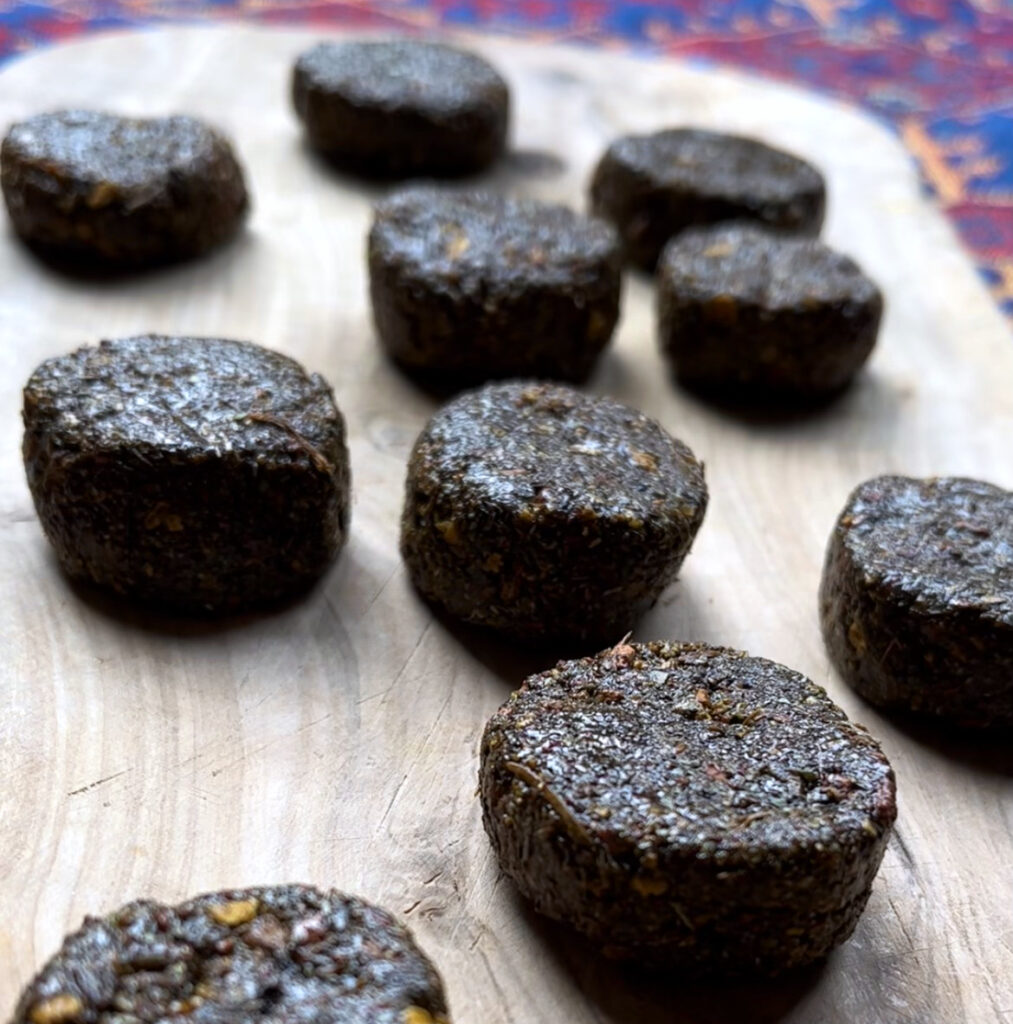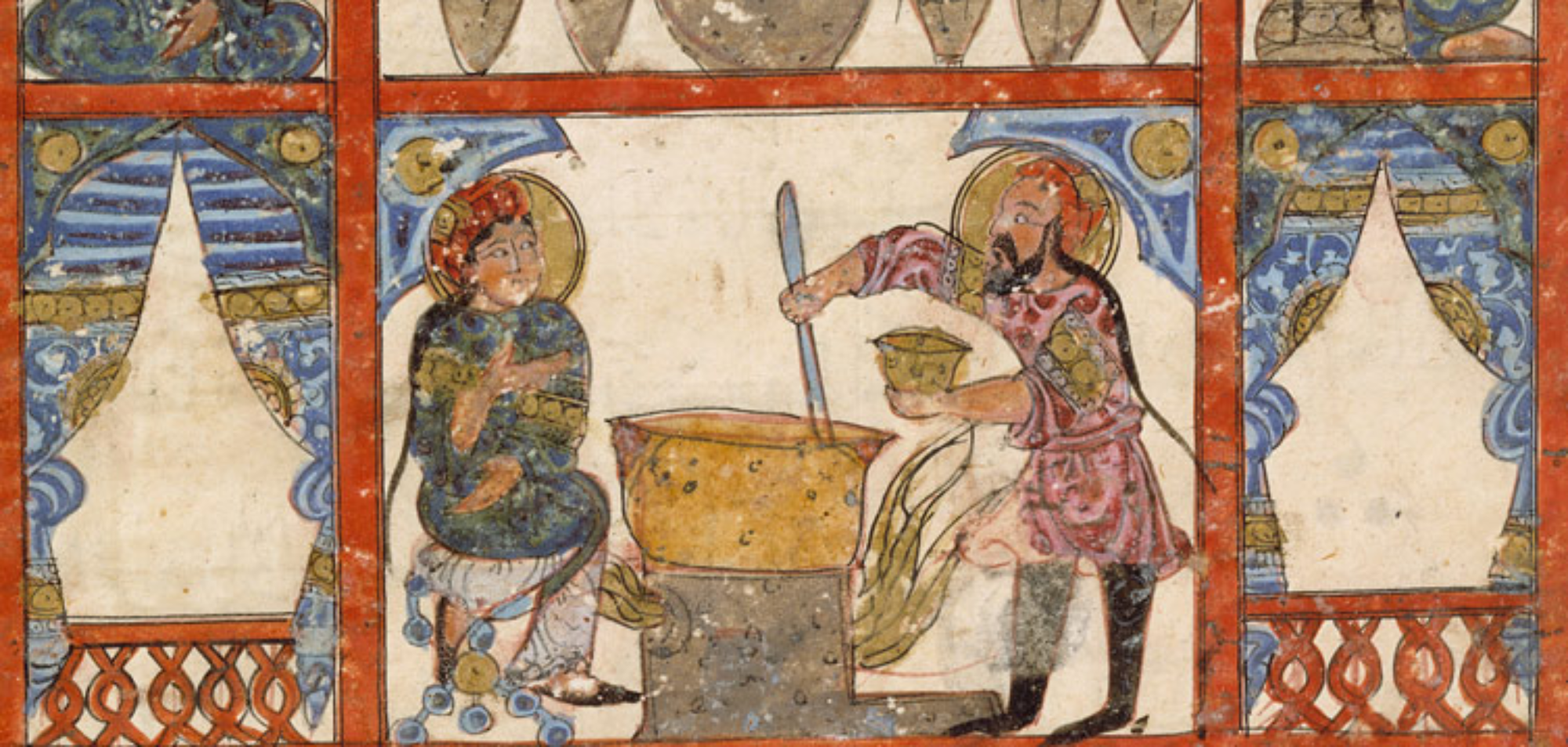This recipe for bakhūr Barmakiyya from a 14th-century Egyptian cookery book is named after the Barmakids, a powerful family of Persian origin, several of whose members held high offices — including that of vizier — to a number of Abbasid caliphs in the 8th and 9th centuries. The most renowned member of the family is no doubt Ja’far, who was the favourite companion of Harun al-Rashid, and both occur as protagonists in several stories from the 1001 Nights, often involving them roaming around Baghdad at night. With such great favour came untold wealth and power, but the Barmakid rule came to a brutal end when, for reasons that are still a mystery, Harun suddenly turned on them, had Ja’far executed, and their property confiscated. However, their fame and generosity lived on through many stories in Arabic literature.
In the Arabian Nights, the Barmakids are also involved in a wonderful story where food — or rather the absence thereof — is the plot. A beggar is invited to share a meal at one of the Barmakid houses but finds that all the food is invisible, while his mischievous host (whose name is never mentioned) pretends to be eating and praises the quality of the dishes. The beggar plays along until, at the end of the meal, he rises and hits his host on the neck. When asked why he did this, the beggar apologizes profusely, blaming his behaviour on the effect of the (invisible) wine he was given! The host is so enchanted by this astute reaction that he orders a real banquet be served to the beggar. Much later, the beggar meets with a particularly gruesome way but that, as they say, is another story… The invisible banquet is the origin of the English expression ‘a Barmecide feast’, which refers to pretended or imaginary wealth, generosity or hosptality.
Returning to more fragrant matters, today’s recreation is of an incense which, according to the author of the cookbook, is particularly suited for those in the toilet! It is made with a number of aromatics, such as costus, myrtle leaves, labdanum resin, sour orange and lemon peels, saffron, and honey. So, cook, dry, light up, and let yourself be carried away on the wisps of Mamluk Cairo!


